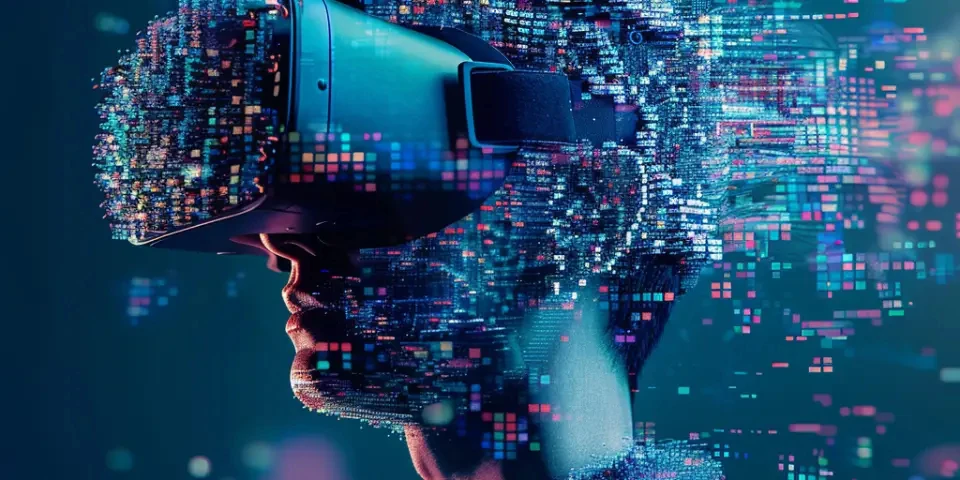AI in Education Enhancing Learning and Revolutionizing the Classroom Experience
Artificial Intelligence (AI) has rapidly emerged as a transformative force in various industries, and education is no exception. Integrating AI into the classroom environment can enhance learning experiences, facilitate personalized instruction, and revolutionize traditional teaching methods. In this article, we will explore the diverse ways AI is making an impact in education.
1. Adaptive Learning
AI-powered adaptive learning platforms analyze student performance data to tailor learning content, pacing, and assessments according to individual needs. These platforms provide personalized feedback, identify areas where students struggle, and offer customized learning pathways. By adapting to the unique learning styles and abilities of students, AI significantly enhances their educational experiences.

One notable example of adaptive learning technology is Knewton. This platform uses machine learning algorithms to continuously adapt and personalize the educational content in real-time, delivering a highly personalized learning experience.
2. Intelligent Tutoring Systems
Intelligent Tutoring Systems (ITS) leverage AI to provide personalized and interactive guidance to students. These systems can understand students' weaknesses, tailor instruction to address those areas, and provide immediate feedback. ITS can simulate human-like interactions, creating an engaging and supportive learning environment.
One popular ITS is Carnegie Learning's Cognitive Tutor, which uses advanced AI algorithms to provide individualized instruction in mathematics. It adapts to each student's needs, offering targeted intervention and practice exercises.
3. Virtual Reality (VR) and Augmented Reality (AR)
AI is transforming traditional classroom experiences with the integration of virtual reality and augmented reality technologies. VR and AR enhance learning by providing immersive and interactive experiences that promote deeper understanding and engagement. Virtual simulations and visualizations allow students to explore complex concepts, historical events, and scientific phenomena in a virtual environment.
Platforms like Google Expeditions use AR and VR to take students on virtual field trips, allowing them to explore various locations and historical moments. By bringing the outside world into the classroom, these technologies foster learning beyond textbooks.
4. Smart Content
AI-powered smart content is designed to adapt to the specific needs of students. It provides interactive and dynamic learning experiences through multimedia elements, such as videos, animations, and simulations. AI algorithms analyze students' interactions with the content to deliver personalized recommendations and insights.
A popular example is TED-Ed's Lessons Worth Sharing, where AI algorithms match educational videos to specific learning objectives. It offers engaging content while simultaneously encouraging critical thinking and knowledge retention.
5. Automated Grading and Feedback
AI streamlines the grading process, enabling teachers to provide prompt feedback without the burden of manual assessment. Natural Language Processing (NLP) algorithms can analyze written answers and essays, evaluate them against predefined criteria, and assign accurate grades. This automation saves teachers time, allowing them to focus on instructional support and individualized feedback.
Tools like Turnitin utilize AI to check student assignments for plagiarism, ensuring academic integrity while providing detailed feedback on originality and writing quality.
6. Intelligent Data Analysis
AI algorithms have the ability to analyze vast amounts of student data, identifying patterns and trends that can inform instructional strategies. By tracking student progress, learning gaps, and engagement levels, AI can provide valuable insights that help teachers personalize instruction and identify areas for improvement.
Data analysis platforms like Brightspace Analytics leverage AI to generate visualized reports and predictive models. Teachers can use these tools to gain a deeper understanding of students' learning needs and make data-driven decisions.
7. Language Learning and Translation
AI-powered language learning platforms, such as Duolingo, use machine learning techniques to personalize language instruction based on individual proficiency and learning pace. These platforms provide interactive exercises, track progress, and offer targeted language practice.
AI-based translation tools, such as Google Translate, facilitate communication and language comprehension across various languages. While these tools may not be perfect, they are constantly improving and can be incredibly useful for language learners.
8. Emotional Intelligence and Mental Health Support
AI can help educators monitor and support students' emotional well-being. Facial recognition algorithms can analyze students' facial expressions and body language to detect signs of emotional distress. Chatbots equipped with Natural Language Processing can offer immediate support and resources, providing students with an outlet to express their feelings and concerns.
Platforms like Woebot and Wysa have been developed to offer mental health support to students. They utilize AI algorithms to provide personalized conversations, mood tracking, and recommend coping strategies.
Frequently Asked Questions:
Q: Will AI replace teachers in the future?
A: No, AI cannot replace the essential role of teachers in education. However, AI can assist teachers in providing personalized instruction, automating administrative tasks, and enhancing the quality of education.
Q: Are there any privacy concerns with the use of AI in education?
A: Privacy concerns can arise when using AI in education. It is crucial to ensure proper data protection measures and transparency in data usage. Striking a balance between personalized learning and protecting students' privacy is of utmost importance.
Q: Can AI support inclusive education?
A: Absolutely. AI offers opportunities for personalized and adaptive learning, enabling inclusive education where students' unique learning needs are addressed. It can provide tailored support for students with disabilities and learning difficulties.
Explore your companion in WeMate